A Deeper Dive Into Our 2023 Impact
A deeper dive into our impact
When the world's attention moves on, we stand with women survivors of war
2023 was a particularly challenging year for women survivors of war and conflict worldwide, with numerous ongoing and new crises impacting their lives. In countries such as Ukraine, Sudan, Yemen, Afghanistan and Palestine conflicts intensified, exacerbating the social and economic difficulties women already faced.
These global conflicts underscored the importance of our mission:
We support the most marginalised women to earn and save money, improve health and well-being, influence decisions in their homes and community, and connect to networks for support. By utilising skills, knowledge and resources they can create sustainable change for themselves, their families and their communities.
We're proud to share our impact with you, our global community, and are grateful for your steadfast commitment in helping us reach those who are often forgotten.
Understanding our data
It’s important to note that our reported figures reflect the total number of graduates, with 30% to 40% of them being sampled each year for our baseline and endline surveys. The data presented here comes from that subset, providing valuable insights into the lives and progress of our participants. 14,574 graduates and 97% graduation rate reflect all our 2023 graduates, the 41% who increased their earnings during the programme are from the 30-40% of graduates who were sampled.
Key stats
14,574
Number of women who graduated from our programme in 2023. This marks a significant increase from last year's 10,933 graduates.
97%
Our programme participants achieved a 97% graduation rate, an increase from last year's 93%, underscoring the growing reach and impact of our programmes.
41%
Globally, the percentage of participants who increased their earnings from baseline to endline. These figures vary by country and context.
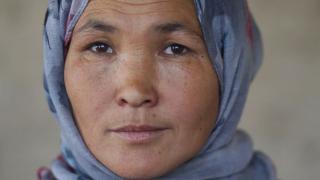
Demographic Overview
Our participants' unique needs and challeneges
The average participant in our programmes is a 31 to 40-year-old married woman, illiterate and a mother of four children. This demographic has remained consistent with previous years. Additionally, 15% of our participants identify as heads of their households, managing families typically comprising around seven members.
Educationally, almost 30% of our participants have no formal education, while 33% have some level of literacy, and 58% are numerate. Furthermore, 3% report having a disability and 23% have been displaced from their homes, highlighting the diverse and often challenging circumstances these women face.
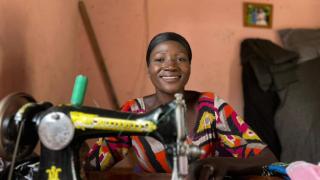
Vocational Training
A step towards economic security
One of our key economic indicators is the increase in net earnings. Globally, 41% of women reported an increase in their net earnings between our baseline and endline surveys. For example, in Nigeria, 48% of women saw an increase and in the Democratic Republic of Congo (DRC), this figure was an impressive 85%.
In Iraq, only 2% reported increased earnings, reflecting the unique economic challenges faced in different contexts. A contributing factor to this is that women in Iraq tend to wait until after graduating to generate income using their vocational skills, which aren't captured by our endline surveys that happen at graduation. Our graduates in Iraq also face significant cultural barriers to income generation, as well as structural barriers due to living in refugee camps that lack access to market opportunities.
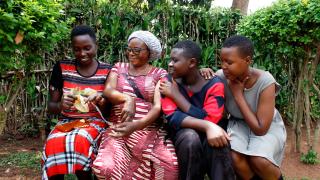
Economic outcomes
A significant increase in earnings
Examining actual earnings, we see significant variations across countries. In the DRC, average monthly net earnings rose from $21 at baseline to $62 at endline. In contrast, Iraq showed minimal change due to cultural factors where women typically start earning only after graduation.
Globally, the average monthly net earnings increased from $14 (among 63% of women) at baseline to $29 (among 70% of women) at endline.
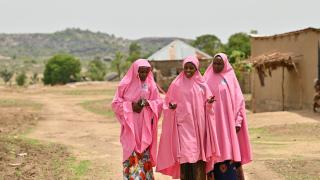
Knowledge of Gender-Based Violence (GBV), Rights and Health
Taking action to make empowered decisions
An understanding of GBV, rights and health is critical for women to make informed decisions about their bodies. Participants’ ability to identify gender-based violence in various scenarios improved from 64% at baseline to 95% at endline.
Similarly, knowledge of their rights increased from 50% to 86% and health-related knowledge saw a rise from 62% to 70%.
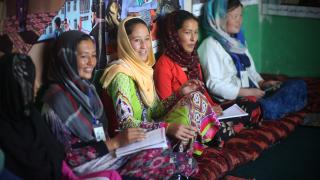
Savings and Food Security
Building resilience in uncertainty
Despite economic hardships, women in our programmes have made remarkable strides in savings. At the global level, the percentage of women who save money increased from 20% at baseline to 67% at endline.
Food security also saw significant improvements. Food insecurity, which we aim to decrease, dropped globally from 60% at baseline to 37% at endline. Though some contexts showed less dramatic changes, the overall trend is encouraging.
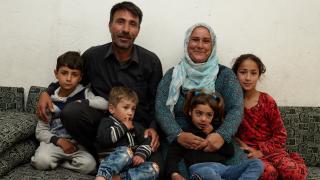
Household Decision-Making and Family Planning
Building influence at home
Education on household issues allows women to better influence the decisions that affect their families.
Women’s involvement in household decision-making more than doubled, with 41% of graduates taking part at baseline compared 87% at endline. The practice of family planning also saw a notable increase from 34% to 51%.
Keeping the momentum going
Our goal is to reach millions of women survivors of war - we need your help
Our 2023 results highlight the impact of our programmes which are rooted in the courage, resilience and talent of the women survivors of war we serve. Despite the challenging economic and social conditions, our participants have made substantial gains in earnings, savings, food security, self-efficacy and knowledge of essential topics.
We will continue to build on these successes, striving to support more women as they take courageous steps to rebuild their lives – together we can change the world, one woman at a time.

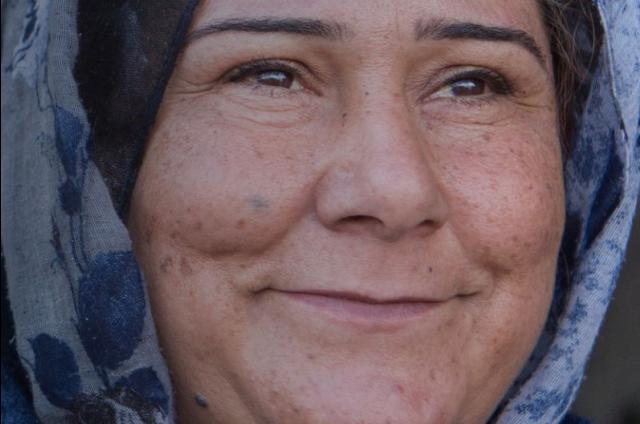
Social Outcomes: Beyond Economics
The power of self-belief
We also measure social outcomes to understand the broader impact of our programmes. One such measure is self-efficacy, which reflects women's belief in their ability to achieve goals and overcome challenges. Globally, self-efficacy scores more than doubled from 35 at baseline to 86 at endline. This score is an index on a scale of 0 to 100, with 100 indicating the highest possible self-efficacy
One of our graduates, Angelique, lives in the DRC. She dared to persuade a skeptical community that she had just as much right to own land as her husband. This is her story.